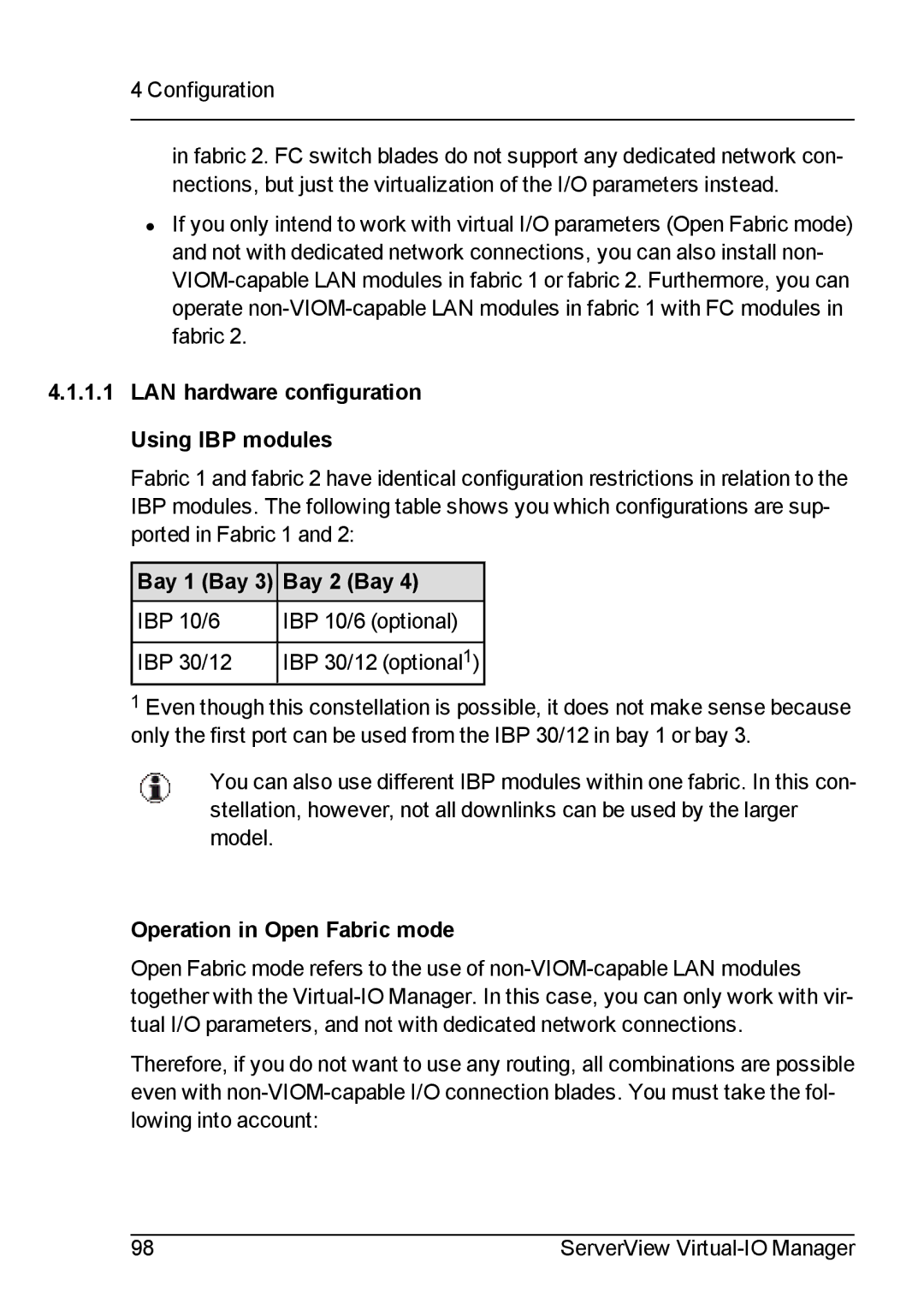
4 Configuration
in fabric 2. FC switch blades do not support any dedicated network con- nections, but just the virtualization of the I/O parameters instead.
•If you only intend to work with virtual I/O parameters (Open Fabric mode) and not with dedicated network connections, you can also install non-
4.1.1.1LAN hardware configuration Using IBP modules
Fabric 1 and fabric 2 have identical configuration restrictions in relation to the IBP modules. The following table shows you which configurations are sup- ported in Fabric 1 and 2:
Bay 1 (Bay 3)  Bay 2 (Bay 4)
Bay 2 (Bay 4)
IBP 10/6  IBP 10/6 (optional)
IBP 10/6 (optional)
IBP 30/12  IBP 30/12 (optional1)
IBP 30/12 (optional1)
1Even though this constellation is possible, it does not make sense because only the first port can be used from the IBP 30/12 in bay 1 or bay 3.
You can also use different IBP modules within one fabric. In this con- stellation, however, not all downlinks can be used by the larger model.
Operation in Open Fabric mode
Open Fabric mode refers to the use of
Therefore, if you do not want to use any routing, all combinations are possible even with
98 | ServerView |
